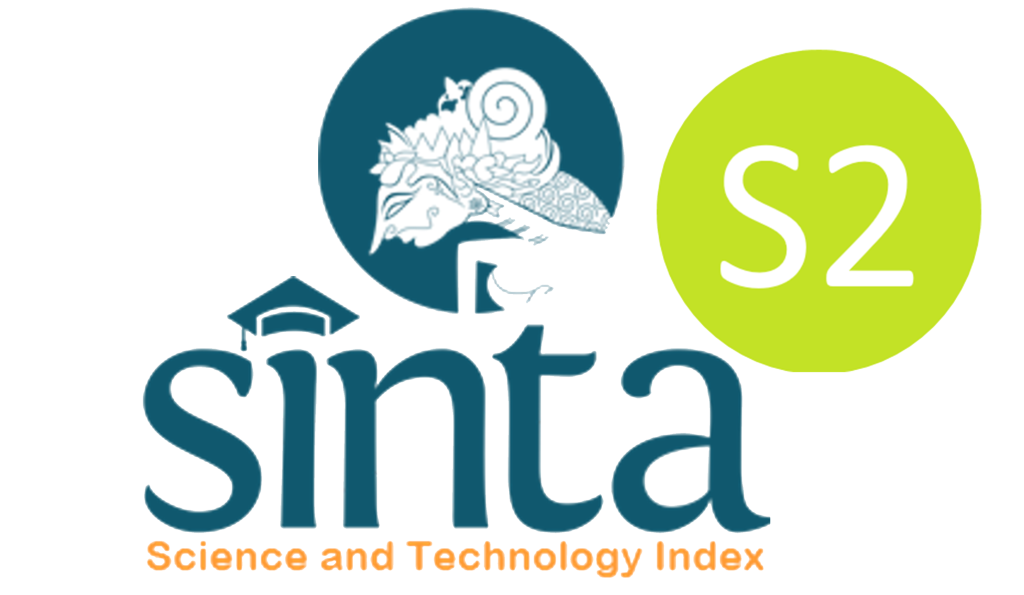THE ROLE OF EDUCATIONAL SUPPORT SYSTEMS IN INTEGRATING ENVIRONMENTAL EDUCATION INTO LIFE SCIENCES
DOI:
10.54443/ijerlas.v5i1.2314Published:
2025-01-30Downloads
Abstract
Integrating Environmental Education into the Life Sciences curriculum is crucial for fostering environmental literacy and promoting sustainable development. This study explores the role of educational support systems—including policy documents, textbooks, and subject advisors—in facilitating Environmental Education (EE) integration in the Vhembe District of South Africa. Guided by Bronfenbrenner’s Ecological Systems Theory, the research adopts a qualitative, phenomenological case study approach, utilizing document analysis and semi-structured interviews with Life Sciences teachers and a subject advisor. The findings reveal significant gaps in the instructional support provided by resources such as the Curriculum and Assessment Policy Statement (CAPS), textbooks, and pacesetters. These foundational materials lack explicit strategies for effective EE integration. Additionally, subject advisors face challenges in offering specialized support due to systemic constraints, including a focus on general curriculum goals and limited resources. This study underscores the urgent need for a cohesive and comprehensive approach to EE integration. Key recommendations include the development of targeted instructional resources, enhanced professional development for educators, and better coordination between policy and implementation. These measures are essential for equipping educators to deliver meaningful Environmental Education, enabling learners to address critical environmental challenges and contribute to sustainable development.
Keywords:
Environmental Education, Life Sciences, Educational support systems, integrationReferences
Abendan, C. F., Villa, F. L., Miñoza, C. A., & Carampatana, M. J. (2023). Senior High School Environmental Education Integration: A Systematic Review of Related Literature. Excellencia: International Multi-disciplinary Journal of Education (2994-9521), 1(3), 129-139.
Aladejebi, D.T. (2020). An Exploration of the Intended, Enacted and Achieved Environmental Education Curriculum within the Social Studies Teacher Education Programme at a Nigerian University. (Unpublished. D.Ed. thesis. University of KwaZulu Natal).
Alam, M. (2023). Activists’ heterodoxic beliefs in fostering urban environmental education in Indonesia. Local Development & Society, 4(1), 128-145.
Bahari, S.F. (2010). Qualitative versus quantitative research strategies: constrictingepistemological and ontological assumptions. Jurnal Teknologi, 52(1): 17-28.
Bopape, J., Mudau, A.V., & Msezane, S.B. (2021). Greening the school for sustainable development: Tshwane North District case. Journal for the Education of Gifted Young Scientists, 9(2), 161-180. DOI: http://dx.doi.org/10.17478/jegys.901622
Bronfenbrenner, U. (1979). The ecology of human development: Experiments by nature and design. Cambridge, Massachusetts: Harvard University Press.
Clitheroe, F. Dempster, E. Doidge, M. Marsden, S. Singleton, N & Van Aarde, I. (2013). Focus: Life Sciences grade 10 teachers guide. Maskew Miller Longman (Pty) Ltd 2013. Forest Drive, Pinelands, Cape Town.
Corpuz, A. M., San Andres, T. C., & Lagasca, J. M. (2022). Integration of environmental education (EE) in teacher education programs: Toward sustainable curriculum greening. Problems of Education in the 21st Century, 80(1), 119.
Damoah, B. & Adu, E. O. (2022). Environmental Education in South African Schools: The Role of Civil Society Organizations. Research in Social Sciences and Technology, 7(3), 1-17. https://doi.org/10.46303/ressat.2022.14
Damoah, B., & Adu, E. (2020). Teacher’s awareness of the integrated environmental education curriculum in South Africa. e-BANGI, 17(6), 280-295.
Damoah, B., & Omodan, B. I. (2022). Determinants of effective environmental education policy in South African schools. International Journal of Educational Research Open, 3, 100206.
Damoah,B., & Adu, E. O. (2019). Challenges teachers face in the integration of Environmental Education into the South African curriculum. American Journal of Humanities and Social sciences Research (AJHSSR) 10,pp-157-166.
DBE. (2011). Curriculum and Assessment Policy Statement (CAPS). Life Sciences: Grade 10-12.
De Lange, A.M. (2004). An Evaluation of the Implementation of the School Environmental Policy and Management Plan in Schools in Mpumalanga. (D Ed Thesis, University of South Africa).
Erhabor, N. I., & Don, J. U. (2016). Impact of Environmental Education on the Knowledge and Attitude of Students towards the Environment. International Journal of Environmental and Science Education, 11(12), 5367-5375.
Gebrekidan, T. K., & Gebremedhin, G. G. (2024). Integration and effectiveness of formal environmental education in Africa and India: Review. European Journal of Sustainable Development Research, 8(2).
Guo, F., Meadows, M. E., Duan, Y., & Gao, C. (2020). Geography pre-service teachers’ perspectives on multimedia technology and environmental education. Sustainability, 12(17), 6903.
Hendriawan, D., & Maulia, L. N. A. (2020). Integrated Teaching Material with Education for Sustainable Development on History Subject for High Schools Curriculum Development. In Journal of Physics: Conference Series (Vol. 1477, No. 4, p. 042030). IOP Publishing.
Khademi-Vidra, A. (2017). Curriculum planning of the environmental education. Journal of Central European Green Innovation, 5, 65-80.
Kilag, O. K. T., Taboada, A. R. G., Zamora, M. B., Rabi, J. I. I. A., Calzada, J. R. D., & Manire, E. A. (2023). Exploring Effective Environmental Education Practices to Enhance Environmental Awareness and Education: A Navigational Study. International Journal of Formal Education, 2(6), 14-27.
Kimaro, A. R. (2018), Integrating environmental education (EE) for sustainability into primary school curriculum in Tanzania: Exploring stakeholders’ views and perceptions, MEd dissertation, Dar es Salaam University, Dar es Salaam.
Kopnina, H. (2014). Revisiting education for sustainable development (ESD): Examining anthropocentric bias through the transition of environmental education to ESD. Sustainable development, 22(2), 73-83.
Kumari, S. (2021). Environmental education in context of new education policy 2020. International Research Journal of Engineering and Technology, 8(3), 1929- 1936.
Lotz-Sisitka, H., Belliethathan, S., Pradhan, M., Odeke, G., & Waswala, B. O. (2016). Africa environmental education and training action plan 2015-2024: Strengthening sustainable development in Africa. United Nations Environment Program. https://www.unep.org/resources/report/africa-environmental- education-and-training-action-plan-2015-2024-strengthening
Loubser, C.P., De Beer, J.J.J., Dreyer, J.M., Hattingh, J.P., Irwin, P.R., Le Grange, L.L.L., Le Roux, C.S., Lotz-Sisitka, H. & Schulze, S. (2014). Environmental education and education for sustainability, some South African perspectives. Second edition. Pretoria. Van Schaik Publishers.
Maguire, M. & Delahunt, B. (2017). Doing a thematic Analysis: a practical, step-by- step guide for learning and teaching scholars. All Ireland Journal of Teaching and Learning in Higher Education, 3: 3351-33514.
Mathenjwa, J.S. (2014). The implementation of environmental education in the Ubombo circuit schools. Unpublished M.Ed. thesis. University of Zululand.
Mbah, M. F., & Ezegwu, C. (2024). The Decolonisation of Climate Change and Environmental Education in Africa. Sustainability, 16(9), 3744.
Mdabe, X. H. (2019). The role of subject advisors in supporting teaching and learning: experiences of primary schools’ departmental heads (Doctoral dissertation).
Mohammed, S.I.I. (2016). The implementation of environmental education at Muslim schools in Gauteng: A case study. Unpublished M.ed thesis. University of South Africa.
Mokhele, M. L. (2011). Integrated environmental teaching in South Africa: An impossible dream?. Perspectives in Education, 29(4), 78-86.
Ngcobo, K. H. (2020). Exploring teachers’ experiences on the role of subject advisors in supporting teaching and learning in secondary schools in deprived contexts (Doctoral dissertation).
Sikhosana, L. (2022). Reflections on the Integration of Environmental Education by a Primary School Teacher. International e-Journal of Educational Studies, 6(12), 246-254.
Smith, J.A., Flowers, P. & Larkin, M. (2009). Interpretative phenomenological analysis: theory, method research, Los Angeles, sage.
UNESCO. (2020). Education for sustainable development: A roadmap. UNESCO. https://doi.org/10.54675/YFRE1448
Uy, F. T., Sasan, J. M., & Kilag, O. K. (2023). School Principal Administrative- Supervisory Leadership During the Pandemic: A Phenomenological Qualitative Study. International Journal of Theory and Application in Elementary and Secondary School Education, 5(1), 44-62.
Vasistha, K. (2010). Kalika Yatna-premise and practice–A programme evaluation report. http://ir.riemysore.ac.in: 8080/jspui/handle/123456789/1001
License
Copyright (c) 2025 Khathutshelo Ronald Munasi

This work is licensed under a Creative Commons Attribution 4.0 International License.









